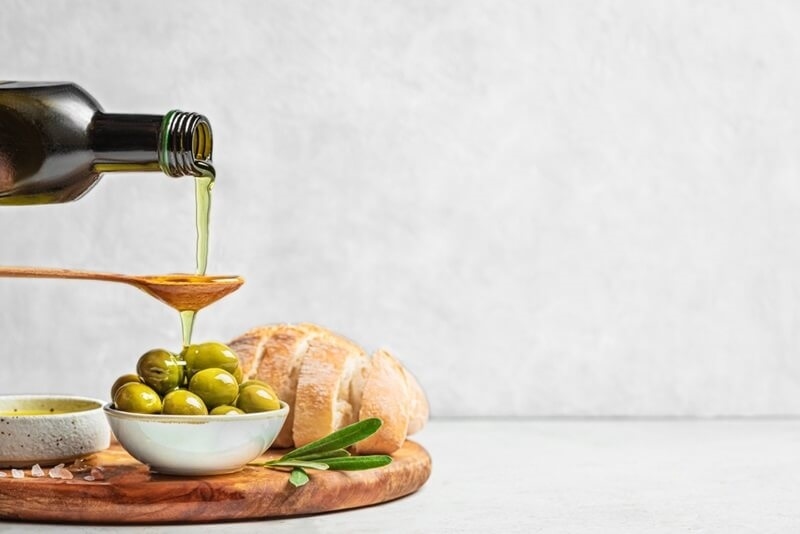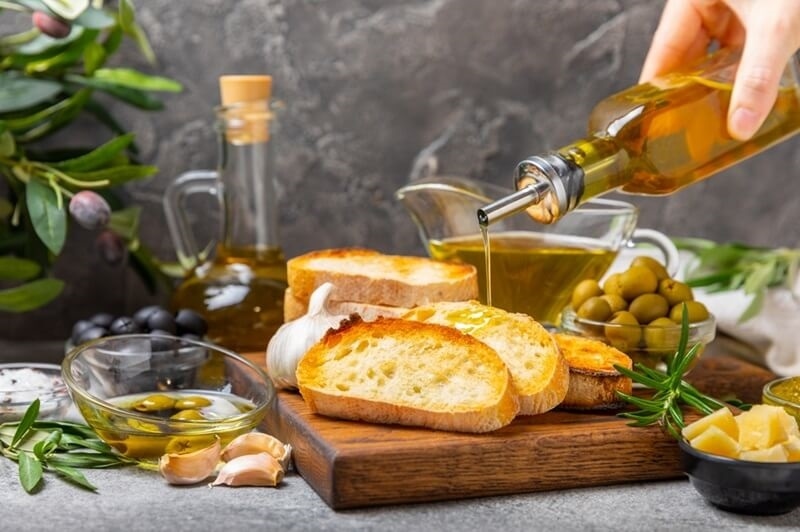
A mainstay of Mediterranean cooking, Spanish olive oil is prized for its depth of taste, several fitness benefits, and long-standing customs. Many of the fine virgin olive oils in the world can be found in Spain, with regions like Andalusia and Catalonia regarded the world over for their liquid gold. Understanding the records of olive oil in Spain and exploring the high-quality olive oil areas presents not only culinary insights but also a deep appreciation for this staple of healthy Mediterranean living. Whether for cooking with olive oil benefits or discovering top-class Spanish olive oil manufacturers, Spain’s olive oil lifestyle is terrific.
The history of olive oil in Spain is as rich as the oils themselves. Ancient civilizations, like the Phoenicians and Romans, were the first to cultivate olives after realizing the fruit's many uses in religious ceremonies, medicine, and cookery. Spanish farmers spread cultivation and urgent techniques at some stage in a long period, transferring knowledge from one era to the next.
Spanish olive oil culture, which blends conventional harvesting techniques with the present-day generation to provide a number of the most appealing oils in the global, has been shaped through those historical practices. One might better recognize the importance of this liquid gem in Mediterranean cooking by means of gaining knowledge of more approximately olive oil in Spain.
Spain’s geographic range contributes to the best flavors of its olive oils. The super olive oil areas include:
Exploring those regions reveals the close-by differences that define the Spanish olive oil manner of existence and shows how geography shapes taste profiles.

The best-renowned olive oil is extra virgin olive oil from Spain, which is made by cold pressing without the use of chemicals. This process maintains the vitamins, healthy fats, and herbal antioxidants that offer nutritional value and flavor.
Beyond taste, there are other benefits of using olive oil in cooking. Spain can:
The culture of Spanish olive oil places a strong emphasis on leading a pleasant life, ensuring that every bottle embodies each flavor and its health advantages.
Spain is domestic to quite a number top top-class olive oil manufacturers, each showcasing unique flavors fashioned by using the way of its place and manufacturing fashion. Some standout names encompass:
By investigating such brands, each expert and home cook can experience the authentic Spanish olive oil way of life, which complements not unusual meals with robust, local flavors.
The foundation of Mediterranean cuisine is Spanish olive oil, which enhances the flavor and depth of a wide variety of foods. Spanish extra virgin olive oil is very versatile, complementing everything from roasted vegetables and grilled meats to soups and tapas.
Using oils sourced from Spain’s pinnacle olive oil areas ensures your food delivers actual flavors that replicate the USA’s culinary history and beyond.
Olive oil estates in Andalusia, Catalonia, and Castilla-La Mancha offer guided tastings for web page traffic to sample the rich scent, bitterness, and pungency.
By tasting oils at their source, one ought to set up an instantaneous connection to the areas and traditions that define the lifestyle of Spanish olive oil.
The Spanish olive oil manner of existence is evolving, with many manufacturers adopting sustainable practices that encompass natural farming, water conservation, and mechanical harvesting to lessen environmental impact.
Modern pressing strategies maintain the oils’ flavor and fitness blessings at the same time as protecting the land. This aggregate of way of life and innovation guarantees that the Spanish olive oil manner of life remains sustainable and internationally elegant and satisfactory.
Regularly incorporating Spanish olive oil into your cooking offers several health advantages:
Spanish olive oil tradition emphasizes the balance between flavor, health, and tradition, making olive oil a key element of a Mediterranean lifestyle.
Mediterranean cooking is exquisitely superior with Spanish olive oil. The proper olive oil complements any dish, whether you're getting ready to roast greens, paella, or tapas.
Choosing oils from the great olive oil regions guarantees proper flavor in each chunk.
To revel in the overall flavor and health benefits of greater virgin olive oil from Spain, proper storage is critical. Simple conduct makes a huge difference:
By following those steps, you maintain notonly the oil’s flavor but also the essence of Spain’s wealthy olive oil lifestyle—from bottle to table.
Spanish olive oil culture isn’t just about what in the end ends up on the desk—it’s a living tradition celebrated through galas and neighborhood gatherings. Across Spain, the one event honors the harvest season, highlights nearby specialties, and invites site visitors to savor America’s most precious issue.
Bypassing the cuisine, these galas offer a useful approach to learning about Spanish history, where culture, community, and cuisine all coexist.
Spanish olive oil culture combines centuries of way of existence, culinary artistry, and health benefits. From exploring the super olive oil areas and tasting top magnificent Spanish olive oil brands to embracing the cooking with olive oil benefits, Spain offers an unforgettable olive oil adventure. Incorporating the oils into normal existence enhances taste, vitamins, and appreciation for the Mediterranean historical past.
This content was created by AI